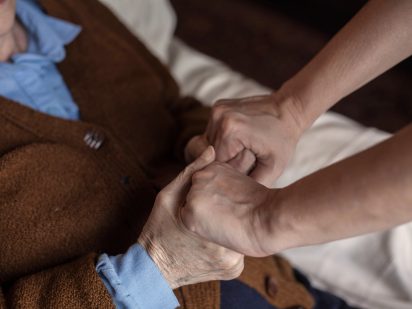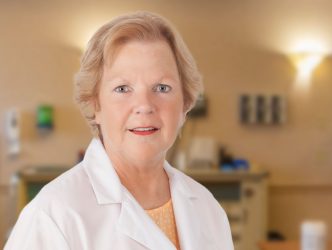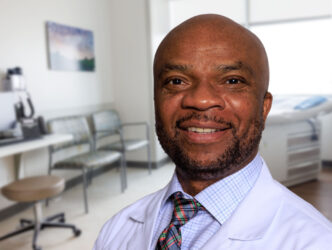November is National Hospice and Palliative Care Month; this year’s theme is “It’s About How You Live.” A program specializing in end-of-life care that promotes “Living” is an intentional reminder that we all end up in one place; it’s how we get there that counts.
The concept of hospice developed in Europe in the 11th century, where the Roman Catholic Church provided hospices as places of hospitality for the sick, wounded, or dying, as well as for travelers and pilgrims. Today, hospices include palliative care for the incurably ill in hospitals and nursing homes, along with at-home care.
Trinity Home Health and Hospice extends “care and support” to include both patient and family. “The goal of Trinity Hospice is to ease the transition during what is most likely the hardest period of one’s life and provide comfort to the patient and family at the same time,” said Elizabeth Spence, director of Trinity Home Health and Hospice. “We meet the patient where they are.”
Hospice care begins when curative treatment is no longer the goal of care and the sole focus is quality of life. It can ease the burden by providing services to the patient and family such as pain control, physical care, symptom management, spiritual and emotional support, and respite for the primary caregiver. Elizabeth said a patient’s hospice team can comprise a mix of doctors, nurses, home health aides, social workers, clergy, and volunteers, where necessary.
Hospice teams are trained to understand patients and families as they cope with advanced illness and to manage healthcare transitions that align with their goals, wishes, and values.
Ideally, hospice care should be introduced to patients with a life-limiting condition, with a prognosis of six months or less, although there is no time limit. Unfortunately, this is often not the case, and hospice assistance goes unnoticed and underutilized.
“There is a stigma associated with using hospice,” Elizabeth said. “People feel like they are giving up and it’s the end of the road. Hospice is not a death sentence. That’s not our goal. Hospice provides comfort, enjoyment, and quality of life during the end-of-life continuum.”
I know this story well. In April 2012, my father-in-law was diagnosed with a terminal illness. Even though he was in his mid-eighties, he was the picture of health: he worked every day, his mind was sharp, he exercised regularly at the YMCA, kept his weight in check, didn’t smoke, and stayed “in the game,” as he would say. On his 85th birthday, he held his brandy in the air and toasted to “another year of cheating death.” People laughed because everyone expected him to live to 100, including himself.
Two months later he received his diagnosis, and as predicted, his health declined rapidly. The oldest child, who lived in another state, left her career and came home to care for her father. She was on call 24 hours day, seven days a week. She was awake when he was awake, slept when he slept. She acted as caretaker, nurse, courier, cleaner, and cook. After a few months, these responsibilities took their toll and became physically and emotionally exhausting.
In late June the family contacted Trinity Hospice for support. Arrangements were made to keep him comfortable, and soon after, he died. As I share my story with Elizabeth, she nods her head as if she’s heard it before and knows how it ends. “This happens more than you think, people wait too long,” she said. “It’s never too early to reach out to Hospice.”
Many families wait for their physician to refer them to Hospice, although referrals can be initiated by anyone – nurses, social workers, clergy, family, friends, or the patient themselves. Information regarding the patient’s diagnosis and prognosis will be requested for a hospice consult. Hospice will then evaluate the patient to determine eligibility and establish a plan of care. Most insurance plans cover hospice benefits.
Although this year’s Home Health and Hospice theme reminds us about living, it’s also important to remember that endings matter. Not just for the person but, perhaps even more, for the ones left behind.
To learn more about Trinity Home Health and Hospice, visit www.trinityhealth.org/services/home-health-hospice/ or call them at 701-857-5082.




